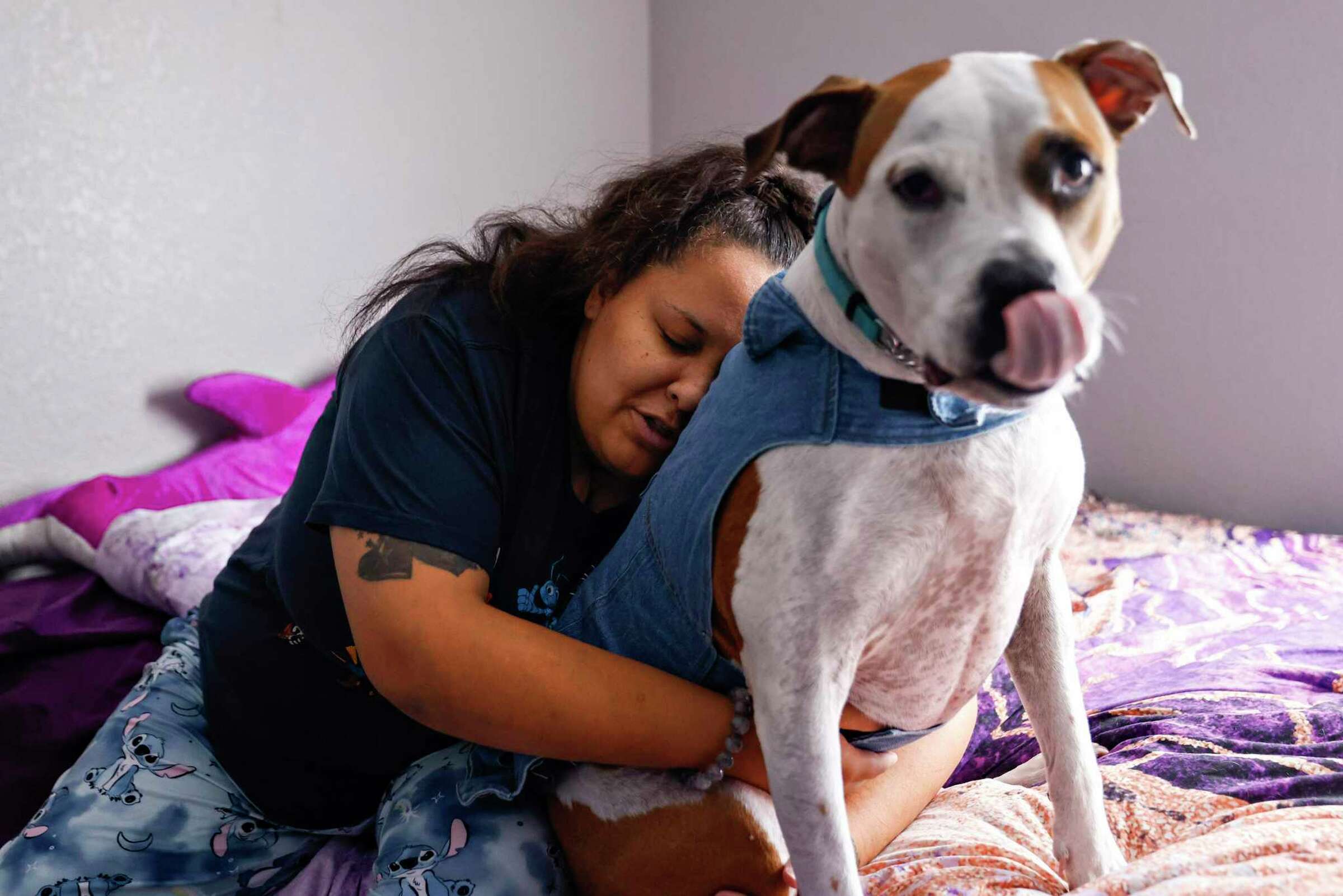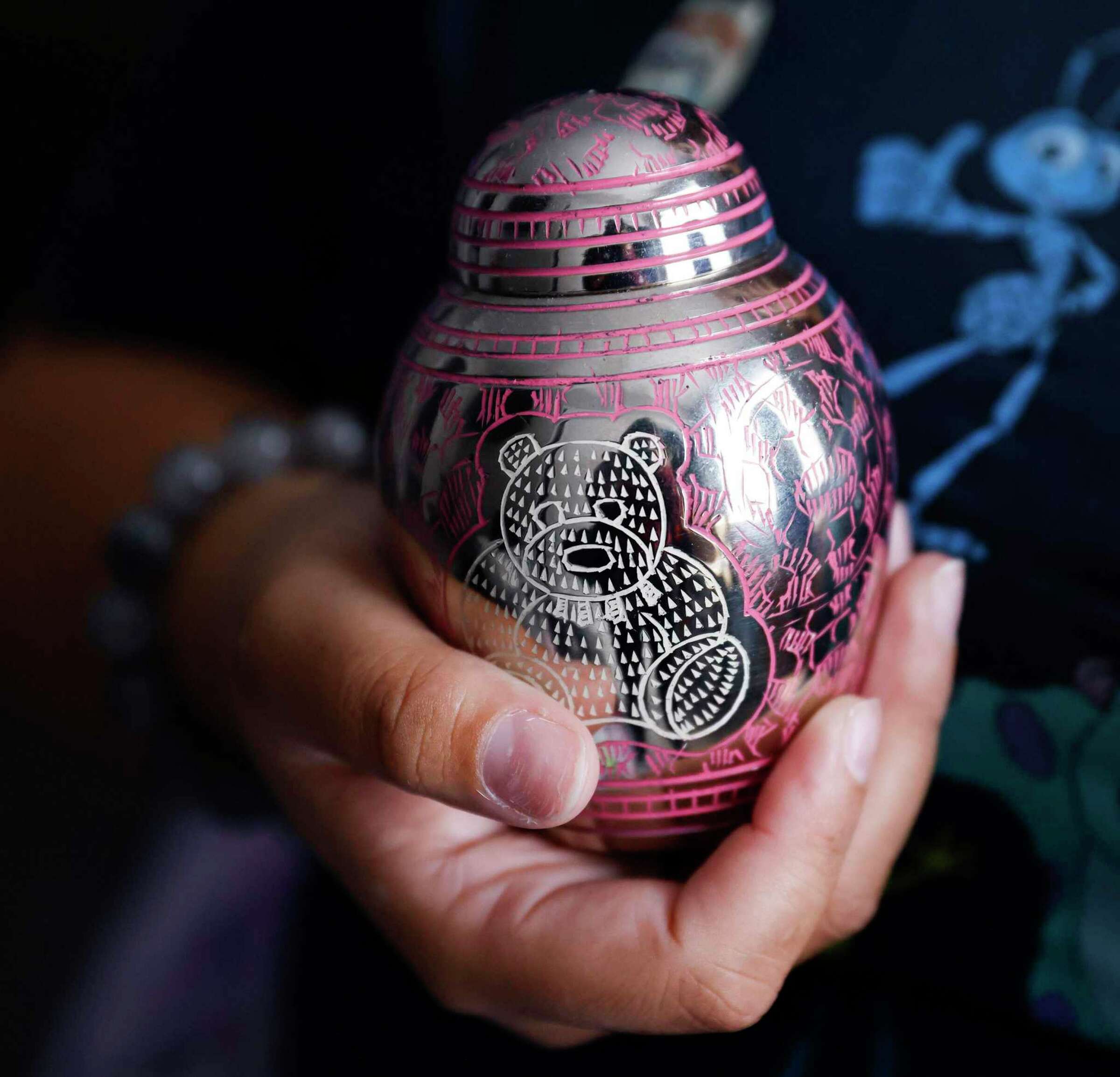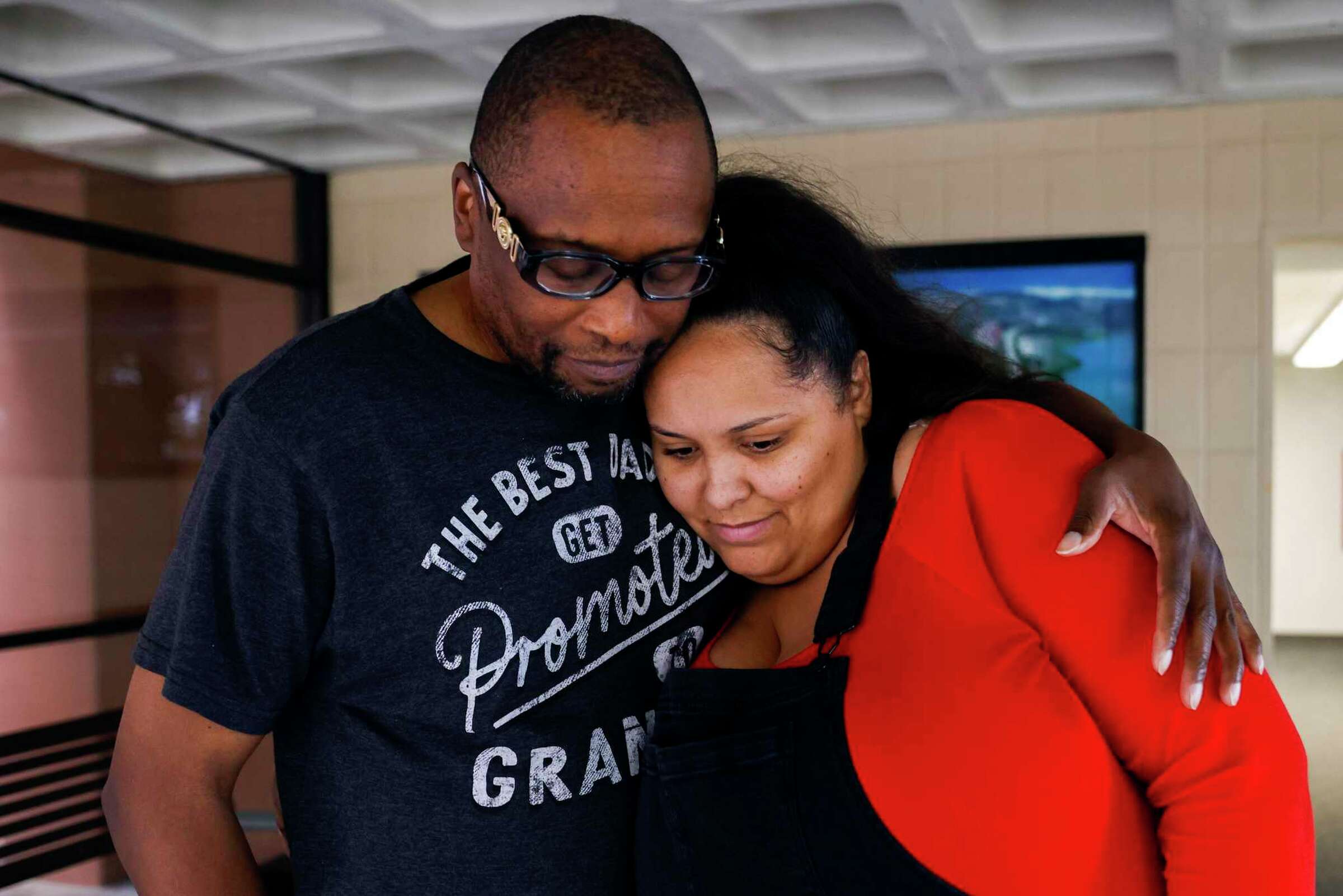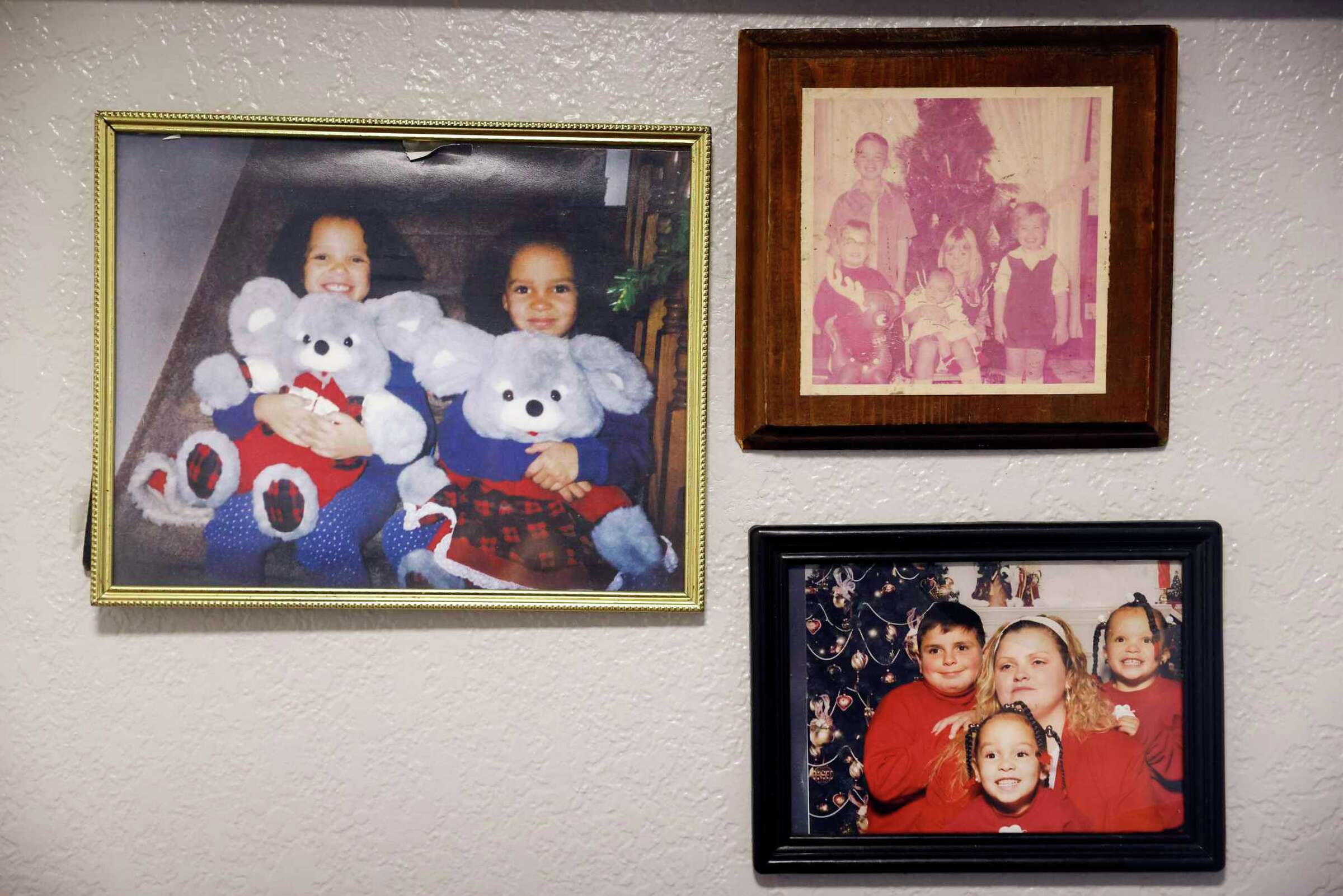
For Jetoshia Jefferson, not yet 30, the apartment she moved into this summer is more than a roof over her head.
“It’s a safe haven,” said Jefferson, who drives for a ride-hailing company. “This is my place. I don’t have to worry about anybody kicking me out. Nobody taking my keys.”
Or worse.
The man Jefferson met in school in 2011 and fell in love with was “everything and more,” she believed, and they moved in together in 2015.
He was her perfect guy. And then, “like a light switch,” she said, he wasn’t. “I didn’t know who he was anymore.”
He found ways to force her to give him her money. He isolated her from friends. He allowed her only two visitors: her father and her twin sister.
She told no one. “I thought he would change,” Jefferson said.
Instead, he added violence to his mental and emotional abuse.
This is a story of survival, and how finding internal strength and reaching out for help rescued a life.



“Sometimes he would get on top of me and try to choke me. And pull my hair. Push me. Get in my face,” Jefferson said. He also pushed her so forcefully that she fell and hit her head. Gone are three molars on her right side.
The police knew the couple’s address well.
“When you love someone you don’t give up on them,” she told herself. “I could help him.”
So why didn’t she leave? Why, even after the man threw her belongings into the hallway more than once and she fled to her father’s apartment in San Francisco, did she return?
Because she believed his tearful promises to change. She felt moved by his pleas for her to come back. And she sensed, in her heart, that he needed her.
“When you love someone you don’t give up on them,” she told herself. “I could help him.”
In January 2021, Jefferson slowed for a traffic accident on the freeway near Concord when another driver slammed into the rear of her car. The collision broke Jefferson’s back. She assumed that recuperating in bed from a major injury would lead to an easier time with the man she lived with, but she was wrong.
“He told me how stupid or ugly or lazy I was. How he could have another girlfriend. That I’m disgusting,” Jefferson said. “These words stuck with me, and I was at one of my lowest points.”
Not for the first time, Jefferson considered suicide. The man handed her a knife.
Last November, she learned that her mother in Utah had been hospitalized with a severe infection. It turned out that she also had COVID-19, and doctors placed her on a ventilator. Jefferson and her twin flew out to meet their other sister and say goodbye.
It took her mother’s death, and what happened next, to lead Jefferson on a path to safety.
At first, the path seemed straightforward: Jefferson moved out of the home she shared with the violent man and, turning to the church, was baptized in January.
“It was the best thing I ever did,” she said.
But it wasn’t enough. The man again promised to change, and Jefferson moved back in with him in April.
When he told her he wished she would die like her mother, Jefferson understood at last that she had to escape. “I didn’t care if I died trying,” she said. “I was going to get away.”
Because we think we’re in this by ourselves, or that we’re the only person going through this. Or that we’re the only person dealing with abuse. But the truth is, we’re not.
With a mixture of anticipation and guilt, Jefferson joined her twin, Jenny, and they looked for a place together. Inspired by the medical help her mother received, Jenny enrolled in a program to become a respiratory therapist. The plan was for Jefferson to work as a driver and support not only the two of them, but also their father, who had been in a car accident and needed help, as well.
“I decided even though it’s a little stressful to pay all the bills, I wanted my sister to get her career because it’ll benefit everyone when she makes it big,” Jefferson said. “And I want to support everyone because they supported me over the years.”
The sisters found a two-bedroom apartment they felt they could afford. But securing the unit required an amount more than double the monthly rent — and more than they could scrape up at once. So Jefferson asked her church for advice, and they pointed her to The Chronicle Season of Sharing Fund.
Founded in 1986, the fund has distributed $179 million in direct donations to Bay Area residents who need help with housing and food. The San Francisco Chronicle and the Evelyn and Walter Haas Jr. Fund pay the fund’s administrative costs.
Season of Sharing gave Jefferson the extra amount she needed for the deposit. Then on Aug. 15, the apartment, the safe haven, was hers.
As her sister Jenny curled up to study in the living room the other day, Jefferson sat in the bedroom she decorated in her mother’s favorite purple hues and created something new: a TikTok video blog.
“I want to start this to help a lot of women out there,” Jefferson says in her first post. “Because we think we’re in this by ourselves, or that we’re the only person going through this. Or that we’re the only person dealing with abuse. But the truth is, we’re not.
“It took me years and years and years. Believe me,” Jefferson says, looking straight into the camera. “If I can leave, so can you.”
Nanette Asimov is a San Francisco Chronicle staff writer. Email: nasimov@sfchronicle.com Twitter: @NanetteAsimov
Read the full article: https://www.sfchronicle.com/bayarea/article/Season-of-Sharing-Family-s-COVID-19-infection
